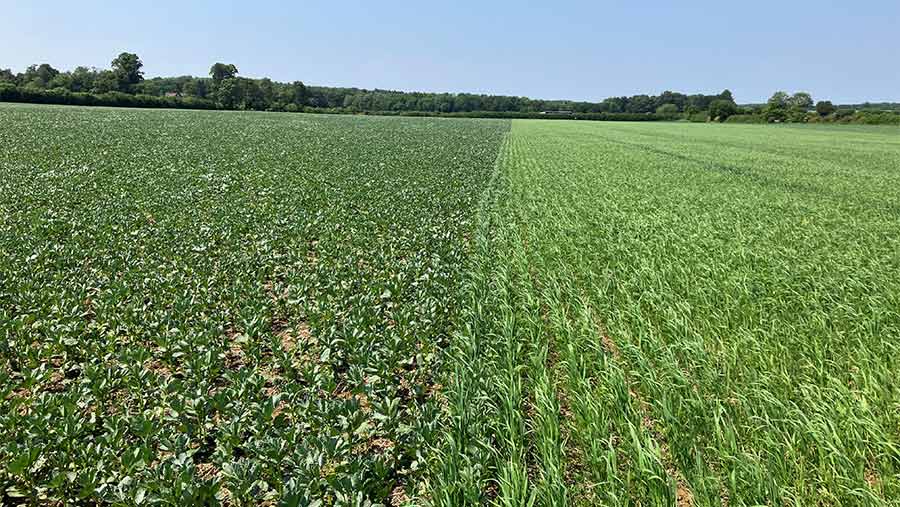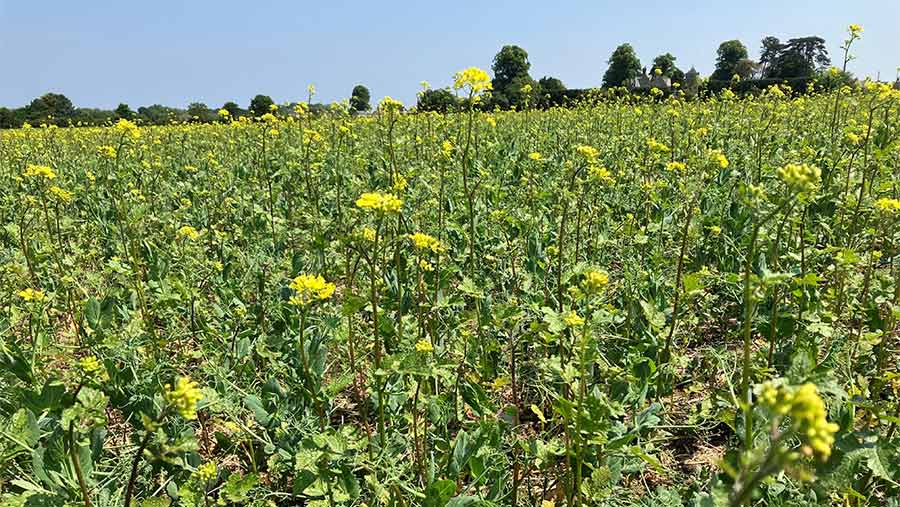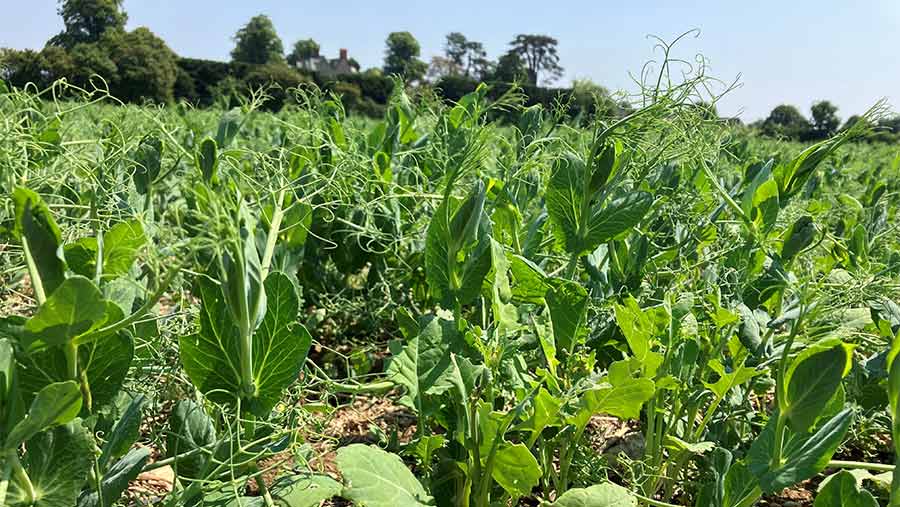Cereals-pulse intercropping project seeks UK trial farmers
 © MAG/Emma Gillbard
© MAG/Emma Gillbard A new project investigating the potential for legume-cereal intercropping across Europe is looking for 20 UK growers to host on-farm trials.
The leguminose project aims to increase the uptake of cereal/pulse intercropping, which currently accounts for 2% of European arable land, and convert the niche farming practice into a mainstream method.
See also: Farmers to reap slice of £5.9m Defra-funded pulse project

Mustard and peas © MAG/Emma Gillbard
Trials in the UK will be run in collaboration with University of Reading and the Soil Association as an Innovative Farmers field lab.
The initiative is, therefore, seeking trial farms from all over the UK to investigate the yield and soil health benefits of intercrops across a range of crop mixes in organic, conventional and regenerative systems.
The research team hopes to work closely with farmers to co-develop the early stage of the project, ensuring practical trial methods that work for growers.
Bringing together a partnership of 17 organisations from around Europe, data will be collected from six global research fields.
A discussion forum, assessing the benefits and barriers of the establishment of 180 on-farm Living Labs across Europe, Egypt and Pakistan, plans to promote knowledge exchange.
This project is funded by Horizon Europe with UK funding provided by UKRI.

Peas and OSR © MAG/Emma Gillbard
Get involved
If you are interested in taking part in the UK intercropping trials or would like to learn more, contact Soil Association adviser Jerry Alford by emailing jalford@soilassociation.org or calling 01179 142417.
The organisation is keen to involve farmers from all regions and systems to ensure the trials are as diverse as possible.
Intercropping survey
As part of the project, the Soil Association and the University of Reading are conducting research into the benefits and barriers to intercropping adoption.
You do not have to be practising intercropping to take part. The Leguminose intercropping survey takes about 15 minutes to complete.
